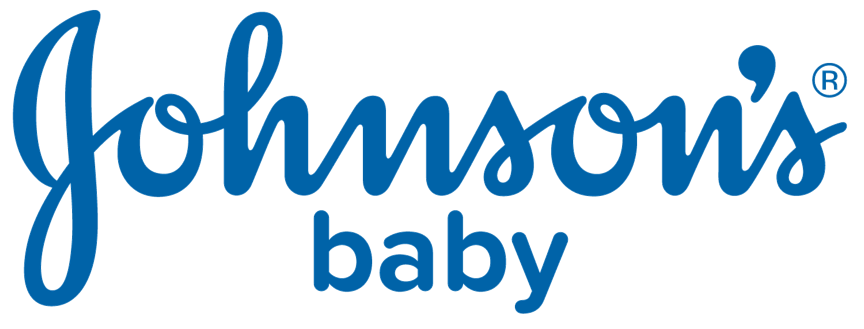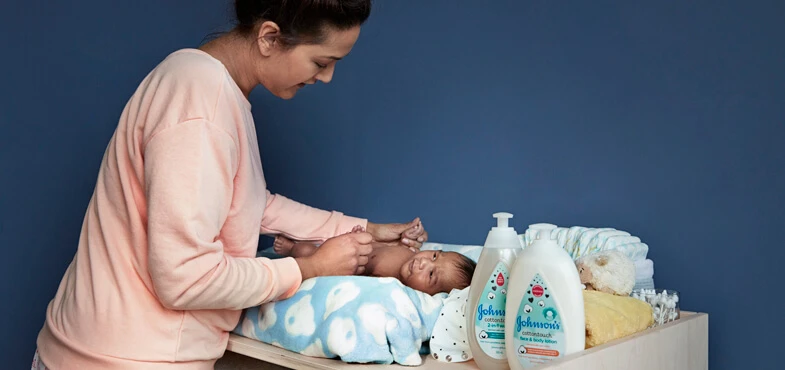Regularly massaging your baby is a way to give them much more. More bonding time. More sensory stimulation. More healthy development.
One of the most important experiences for your baby’s happy development is your loving touch. Research reveals that routine touch and massage by a parent or loving caregiver are critical to a baby’s growth, communication and learning.
Touch: Our First Language
Studies have shown that routine touch and massage can lead to improved physiological, cognitive, emotional and social development. Specifically, routine baby massage has even been shown to improve mental development and increase alertness and attentiveness. Your baby’s first emotional bonds are built from physical contact, and these serve as the foundation for emotional and intellectual development later in life. We believe this to be truly special. Language scientists are now beginning to understand that in many ways, touch is our first language.
Gentle and loving touch can help small babies grow stronger and feel less anxiety. In many hospitals and birth centres, newborns are placed on the mother's chest or abdomen to give them as much skin-to-skin contact as possible.
The touch between a mother and her baby brings them emotionally close – a process known as bonding or attachment. In fact, in one study, premature infants who were massaged while at the hospital gained more weight and were ready to go home with their parents earlier than preemies who were not massaged.
Bonding and Other Benefits of Baby Massage
Baby massage has been practised in many cultures for thousands of years, and research shows many benefits. The information & guides on our website have been created to introduce you to massage and provide examples of what you will learn in a massage class. Through massage, you can gain increased awareness of how your baby communicates and ideas on ways to support your baby in their first few months. You and your baby will discover what is best for you both. It is important to be mindful that massage is something you do with, rather than to your baby.
It is recommended that you learn more from someone with a qualification in infant massage to gain the full benefit. Going to a baby massage group is an ideal way to learn to massage your baby safely.
The International Association of Infant Massage (IAIM) has been instructing parents around the world for over 25 years. For more information, go to www.iaim.org.uk
The benefits of regular massage may:
Help you and your baby understand each other better
Soothe babies and reduce crying
Aid digestion and help relieve colic, wind and constipation
Help babies to sleep more deeply and for longer
Relieve nasal congestion and teething discomfort
Help develop good muscle tone, co-ordination and suppleness
Enhance body awareness
Boost the immune system
Improve skin texture
Help calm and relax both parent and baby
Boost parents’ confidence in handling their baby
Crying
For many of us, babies communicate by crying. Would babies cry less if they were touched more?
New research seems to suggest that increasing mother-baby contact reduces crying. Researchers asked a group of mothers to carry their babies for at least three hours a day. They then compared their crying patterns with a group of babies who were carried the typical one to two hours daily.
The results showed that babies who were carried more, cried less – especially at six weeks of age, when babies typically cry the most. The close bond between parent and baby gave these infants a greater sense of security.
Worries
Some parents don’t pick up their babies as often as they could because they are afraid they will spoil them, but nothing could be further from the truth! Every time you pick up your baby, you let them know that you care and that you understand their needs. So don't hesitate to hold your crying baby.
Carry your baby on your shoulder and sing them a lullaby. Stroke their head, rub their back tenderly, and let them know that you'll always be there. Whilst holding your baby, softly talking and singing can help to strengthen your bond.
Mum & Dad
Did you know that each parent has his or her own way of touching?
Research has shown that when mothers touch babies, they are usually soothing and calming. Mums most often touch gently – they stroke softly, rock slowly, and hold their babies tenderly. Fathers, on the other hand, tend to engage in more physical forms of touch – they bounce babies on their knees, hold them playfully in the air, or roll around on the floor with them.
Your baby benefits from these two different styles of touch. Together they contribute to your infant's healthy development.
Note: If you feel that you don't have the will or energy to create a bond with your newborn, please talk to your health visitor/doctor. You may be suffering from postnatal depression, a physical condition for which there is help. Don't think "it's all in your head" and don't do it alone. It's important - for both your sake and your baby's sake - that you ask for help.
Bonding Through Massage
Learn about some of the benefits of touch and massage.

Building a Bond
BabyCenter® shares how the love between you and your baby develops as he grows.
JOHNSON'S®Pioneering Safety and Science in Baby Care
We are committed to working with Parents, Healthcare Professionals and Scientists to ensure our baby products continue to deliver high standards of safety and care.

